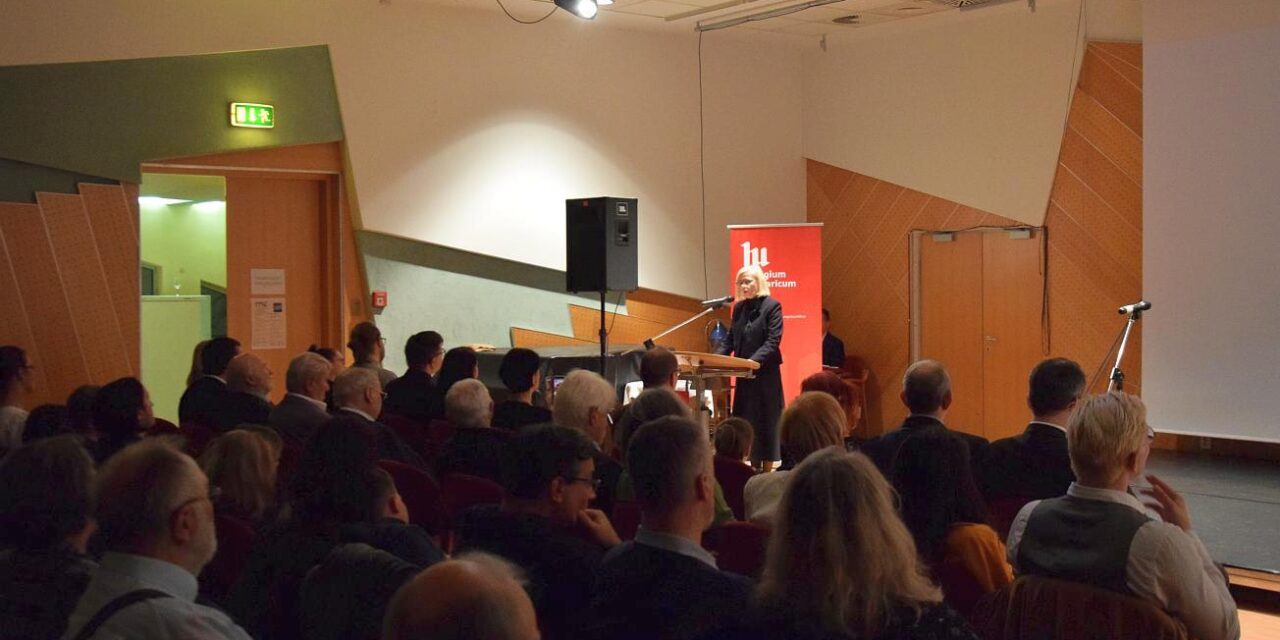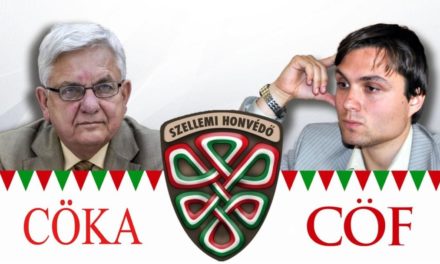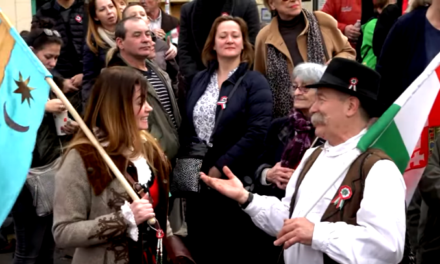The Hungarian community in Vienna was able to take part in an uplifting commemoration organized by the Round Table of Hungarian Organizations in Austria and its numerous member associations, at which we paid our respects to the heroes of the 1956 revolution and freedom struggle.
The commemorative speech was given by Ágnes Judit Kiss, poet, writer and teacher. The author of the adventure novel "Hospital in the Classroom" about the events of 1956 shared his thoughts on the event and the significance of the 1956 revolution. The writer also mentioned her personal involvement, as her parents experienced the events of the revolution as a child and told her a lot about it, although as a child she was aware that she could get into trouble if she spoke about it, since it was still taught as a counter-revolution at school. Later, as a teacher, he organized a number of commemorative lectures, and he also did very deep research for his novel, and shared his experiences with the audience. For example, he mentioned the rarely discussed phenomenon that
there was room for humor even among the horrors.
As an example, he mentioned that some youths placed upside-down plates in front of the tanks to make them think they were bombs, and the tanks turned back. This creative and humorous resistance symbolizes the strength and perseverance of people in difficult times.
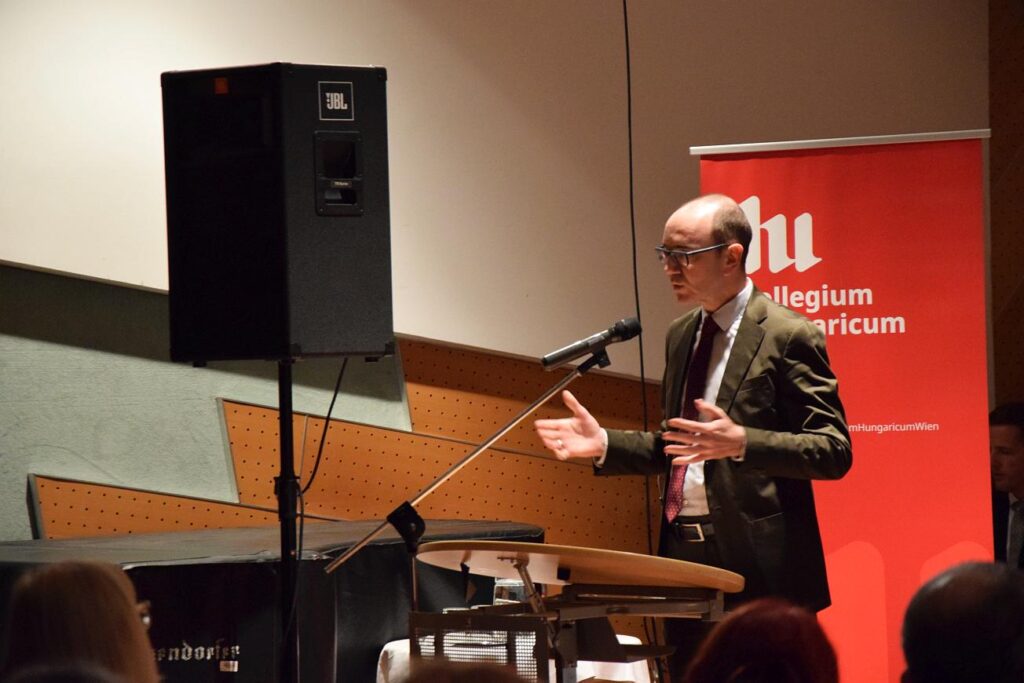
Dr. Márton Méhes, director of the Collegium Hungaricum
In his speech, he emphasized the interesting and touching aspect that
although the horrors and subsequent reprisals overshadowed the period of the 1956 revolution, people still felt happiness.
After perpetual fear and oppression throughout the 1950s, they finally felt the breeze of freedom in this brief period. People could feel the danger and the chance for change at the same time, and this feeling could not be suppressed, even under the most dire circumstances.
The specialness of the evening was enhanced by a musical production. Harpist and composer Zsuzsanna Aba-Nagy played Maros's Rudolf Suite on the illustrious occasion. The program consisted of four parts, which connected the greetings and performances of the evening.
The first address of the evening was given by Edit Szilágyiné Bátorfi, Ambassador Extraordinary and Plenipotentiary of Hungary accredited to Vienna, who highlighted the significance of the events of 1956 and the importance of belonging. Dr. Márton Méhes, director of the Collegium Hungaricum, also spoke, further strengthening the atmosphere of commemorating the October Revolution.
Unfortunately, due to illness, Szilvia Mentsik, the president of the Round Table of Hungarian Organizations in Austria and the Association of Hungarian Teachers in Austria, as well as the executive president of the "Europa" Club, could not participate in the event. Ágnes Sáskáné Nádas, a member of the "Europa"-Club management, greeted the attendees on his behalf.
The Délibáb Hungarian Cultural Association of Vienna presented a special video production based on the poem "Angel from Heaven" by Sándor Márai. In the video, members of Délibáb presented the poem, while contemporary recordings and snapshots recalled the life of Délibáb.
To commemorate the 1956 revolution, Domonkos Tóth, a member of the Hungarian Students' Association in Vienna, recited Károly Jobbágy's poem "Next to the radio". His recital was complemented by a spectacular performance by the students of AMAPED, the Austrian Association of Hungarian Teachers.
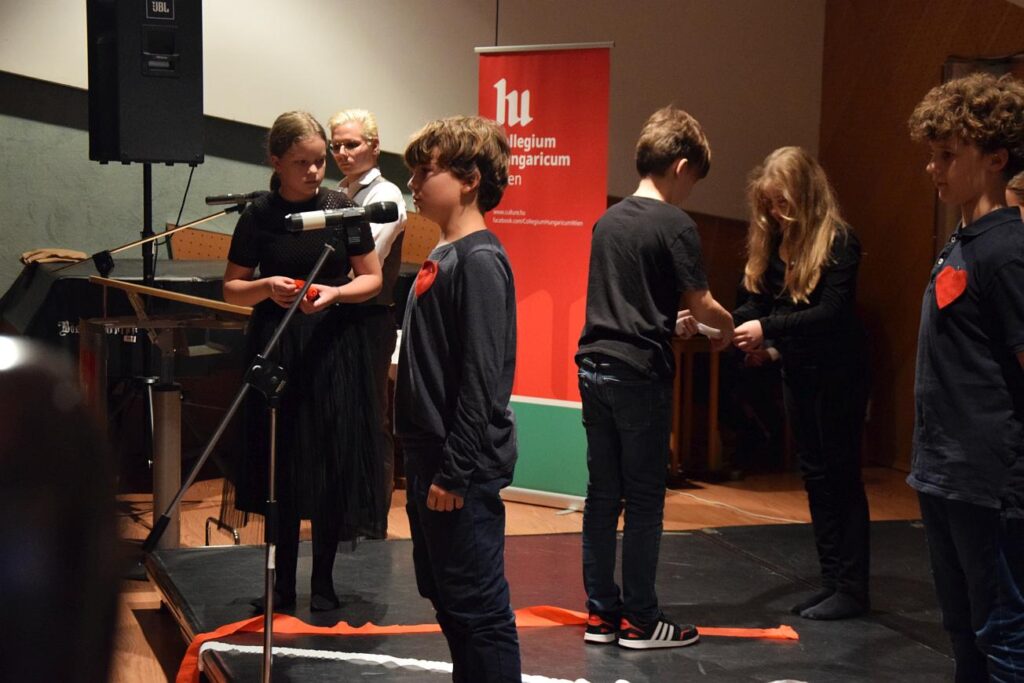
At the end of the evening, Dr. András Smuk, the founding member and president of the "Europa"-Club in Vienna who passed away recently, was remembered.
The evening was moving and reminded those in attendance to never forget those who bravely fought for freedom. The heroes of 1956 live on in our memory as role models.
The message of the revolution is still valid today: freedom and the power of community set an example for those who are looking for a way out in difficult times.
Cover photo: Judit Ágnes Kiss, poet, writer

